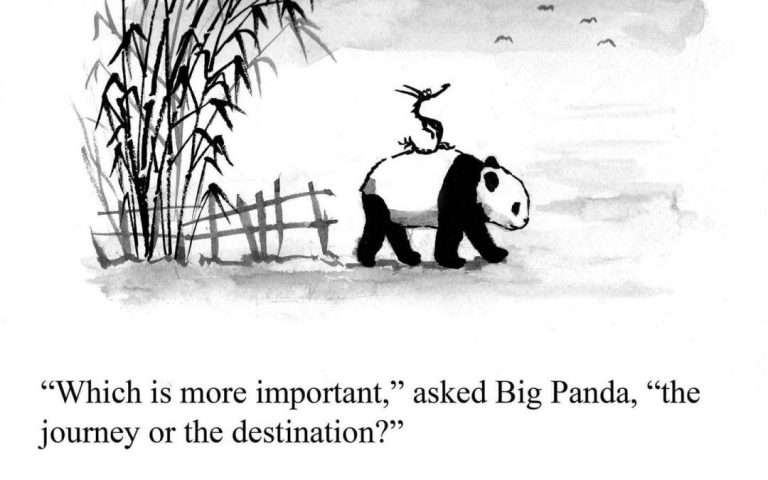Colloquial parlance has always considered these two words to be synonymous with each other and often used them interchangeably. This limitation has nonchalantly spilled onto numerous trails of peer-reviewed literature, right until researchers and practitioners began to appreciate the need to define leadership and delineate the difference between leadership and management. This article puts forth a comprehensive, well-researched viewpoint of the difference between Leadership & Management, the meanings they denote and their diverse affiliations.
Understanding the Difference Between Leadership and Management: Position vs. Person
The first difference between a leader and a manager, or any position of authority, is that leaders see their followers as beyond organizational resources and seek to influence and inspire them while managers exert power and control over organizational titles by supervision and retribution. Leaders develop a vision of value creation and craft strategies to support this vision. Managers control value via inflexible adherence to administrative policies and procedures. It can be said that if leaders are focussed on the process and results, and more, managers pursue only results.
__________________________________________________
Difference Between Leadership and Management: Control vs Empowerment
A true leader empowers his team with honesty and transparency. They appeal to the heart of the followers with their charismatic style of leadership and thus, generate enthusiasm and commitment to work. Managers on the other hand are highly pretentious and parcel out information in quantised sets like it costs them personally. They evoke fear in their followers: fear of failure, punishment and reprimand. Leaders invest in their followers with a transformative stance, seeking to empower them in the long run.
“Managers light a fire under people; leaders light a fire in people.” – Kathy Austin, VP & Chief Experience Officer, Limelight Networks
The early sixties witnessed a prominent roadblock to the civil rights movement in the USA. Robert Kennedy, infamous for his insouciance to the movement, had just been appointed the attorney general and this seemed catastrophic to Martin Luther King’s men. At a meeting, King’s crestfallen team voiced their despair at the turn of events. There was nothing good about Kennedy. Nothing at all!
Martin Luther King then went on to demonstrate why he became one of history’s most charismatic leaders and most deservedly so! He wouldn’t listen to any more negativity about Kennedy but insisted that his team find redeeming qualities of Kennedy that could turn around what seemed like a lost situation. As it turned out, Robert Kennedy was very close to his bishop and King’s supporters decided to use this acquaintance to their advantage. They befriended the bishop and explained to him the satiation; possibly the only person who could get through to the attorney general. Well, the bishop did speak to Kennedy for a long time and Kennedy’s change of heart was momentous! Everyone was surprised at the zeal he harnessed towards fore-running the civil rights movement.
American singer and activist, Harry Belafonte famously said, “When Bobby Kennedy lay dead on a Los Angeles pavement, there was no greater friend to the civil rights movement. There was no one we owed more of our progress to than that man.” (Sourced from an answer given by U2 singer Bono, a radical rock star renowned for humanitarian activism )
“The greatest leader is not necessarily the one who does the greatest things. He is the one who gets people to do the greatest things” – President Ronald Reagan, 40th POTUS, 1981- 1989
__________________________________________________
Difference Between Leadership and Management: Build vs Blame
If leaders do not have the answer or do not know how to navigate the issue, they are not afraid to share it with their team. When leaders express themselves authentically, empower their followers and be there for them, a deep connection is built.
One cold morning in Bangalore, Archana Patchirajan, founder of Hubbl- a digital, design and brand marketing startup, called her team for a meeting. Everyone knew that these were testing times and meetings such as these were common. When everyone settled in, she solemnly broke the news that they might have to leave since they had run out of funds. She admitted that she could no longer pay them and it was best that they found work that suited their competence elsewhere in the city. There was pin-drop silence in the room. What followed the silence was shocking!
The group of high-calibre engineers, who had their pick of jobs in the booming Silicon Valley of India, refused to go. Counterintuitive as it may seem, they agreed to rather work for 50% of their pay than leave her. A strange strong commitment soon swept over the team and they worked through the tough times. A few years later, Hubbl sold for $14 million. When asked as to why they took such a drastic decision to stick with Hubbl, the engineers said that “We all work as a family because she treats us as such. She knows everyone in the office and has a personal relationship with each one of us. She does not get upset when we make mistakes but gives us the time to analyze and fix the situation.” (Source: HBR, What Bosses Gain by Being Vulnerable by Emma Seppälä, December 11, 2014)
“A boss has the title; a leader has the people.” – Simon Senek, British-American author and inspirational speaker

__________________________________________________
Difference Between Leaders and Managers in the Current World: Manage vs Coach (Leader As Coach)
True leaders are grounded, open-minded and embrace a coaching mindset. They are thrilled when their teams outperform themselves and showcase their achievements. Managers are anxious and threatened when their team members beat expectations towards organizational and personal goals and rightly, get noticed for work. Leaders live the axiom: collaborate and contribute, not compete and counteract.
The underlying difference between leadership and management lies in the mindset of the person in power. A leader doesn’t mouth instructions but coaches followers to reach a more resourceful state. They do not give or have all the answers. They tap into the true potential of the follower, support them to recognize their strengths and most importantly, ask the right questions so that they can seek the answers themselves. There is a strange thrill in seeking answers by oneself rather than someone thrusting them down on us. If we figure the way out by ourselves, we begin to own the solutions, consequently building accountability and responsibility in the followers. Thus, developing a coaching mindset is one of the key skills leaders cherish. Managers who wish to transform into leaders must pursue this valued skill as the first step toward becoming a leader.
“Management is efficiency in climbing the ladder of success;
leadership determines whether the ladder is leaning against the right wall”
– Stephen Covey, American educator, author, businessman, and keynote speaker

__________________________________________________
Conclusion: Becoming a Leader
Toeing these lines, you could sign up to the exciting ‘Leader as Coach’ programme rolled out by Regal Unlimited that grooms practising leaders and executives eager to step into leadership roles. The uniqueness of this programme lies not only in its curated compendium and certified coach trainers but in assisting aspiring leaders to ask the right questions and seek the answers themselves. Leader as Coach program is curated to pivot yourself to become a successful and impactful leader with a Coaching Mindset. Sign up and see the difference yourself!







